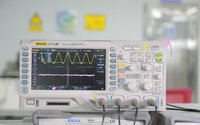What specific aspects do electrical performance indicators refer to?
Date:2023-04-14 14:28:38Views:755
Performance indicators are one of the important indicators of electronic components and circuit performance, usually referring to the electrical characteristics and performance exhibited by components or circuits during operation. In electronic circuits, electrical performance indicators can be used to measure the conductivity, capacitance, and conductivity of components or circuits, which are of great significance for the design, selection, and use of components and circuits. Specifically, electrical performance indicators include the following aspects:
resistivity
Resistivity refers to the magnitude of the resistance of a component or circuit. The higher the resistivity, the poorer the conductivity of the component or circuit. On the contrary, the lower the resistivity, the better the conductivity of the component or circuit.
Permittivity
Permittivity refers to the capacitance of components or circuits. The higher the permittivity, the worse the capacitive performance of the component or circuit. Conversely, the lower the permittivity, the better the capacitive performance of the component or circuit.
_20230414141517_283.jpg)
conductivity
Conductivity refers to the electrical conductivity of a component or circuit. The higher the conductivity, the better the conductivity of the component or circuit. On the contrary, the lower the conductivity, the worse the conductivity performance of the component or circuit.
frequency response
Frequency response refers to the performance of a component or circuit at different frequencies. Usually, the better the frequency response of a component or circuit, the more stable and reliable its electrical characteristics at various frequencies.
temperature stability
Temperature stability refers to the performance of a component or circuit at different temperatures. Usually, the better the temperature stability of a component or circuit, the more stable and reliable its electrical characteristics are at various temperatures.
Immunity
Immunity refers to the performance of a component or circuit when subjected to external interference. Usually, the better the anti-interference performance of a component or circuit, the more stable and reliable its electrical characteristics are in various interference environments.
Understanding and mastering the relevant knowledge of electrical performance indicators in the design, selection, and use of electronic components and circuits can effectively improve the performance and reliability of circuits, reduce failure rates and maintenance costs. Therefore, for personnel engaged in the field of electronic engineering, it is very important to be familiar with the relevant knowledge of electrical performance indicators.
The above is an introduction to electrical performance. If you have any needs in this regard, please feel free to consult Chuangxin Testing!




 Weixin Service
Weixin Service

 DouYin
DouYin
 KuaiShou
KuaiShou




















